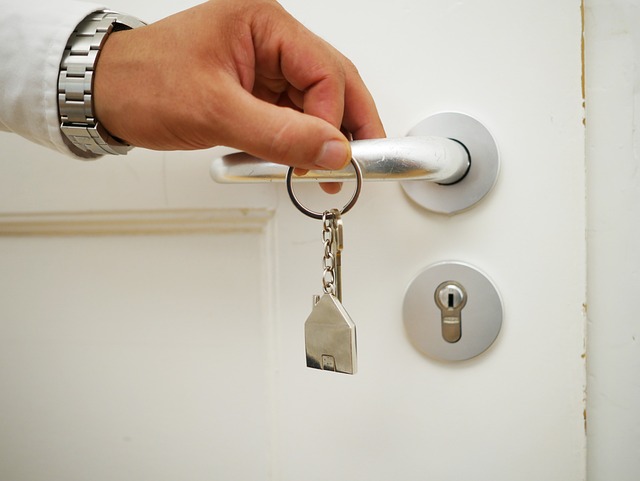House sitting serves as a crucial service for homeowners who travel, providing a dual benefit of security and property maintenance through responsible sitters who act as stewards, deterring intruders, maintaining routines like plant watering and mail collection, and sometimes caring for pets. This service is particularly advantageous for high-value homes with sophisticated systems that require specialized care. To ensure the highest level of care for your property, it's recommended to use reputable house sitting networks or platforms. Due diligence is essential when selecting a sitter; conduct thorough online research, check profiles and reviews on dedicated house sitting platforms, and personally meet candidates to assess their reliability and skills. A formal agreement outlines roles, expectations, and boundaries, including emergency protocols, maintenance management, and references from previous homeowners. For additional security, consider tenant screening services and verify that your chosen sitter is bonded or insured. Regular communication helps keep you informed about your home's condition while away. House sitting not only secures your home but also maintains its condition with a personal touch. This symbiotic relationship between homeowner and sitter offers mutual benefits, with sitters gaining free lodging and new skills, and homeowners enjoying peace of mind. A detailed house sitting agreement is essential to clearly define the responsibilities, expectations, and financial arrangements, ensuring a successful and secure experience for both parties.
homeowners often face the challenge of securing their homes while away. This article delves into the advantages and practicalities of house sitting, a solution that aligns the needs of property owners with those seeking trustworthy residential caretaking roles. We’ll explore the nuances of finding reliable house sitters, the importance of thorough vetting, and the mutual benefits this arrangement offers. From drafting a comprehensive house sitting agreement to understanding the legalities and ethics involved, readers will gain valuable insights into making informed decisions for their homes’ care during absence. House sitting emerges as a pivotal topic for local homeowners looking to safeguard their properties and for individuals interested in such opportunities.
- Understanding the Role of House Sitting for Local Homeowners
- Vetting Potential House Sitters: Tips and Best Practices
- The Benefits of House Sitting for Both Homeowners and Sitters
- Creating a House Sitting Agreement: Key Points to Cover
Understanding the Role of House Sitting for Local Homeowners

When local homeowners travel or relocate temporarily, finding a trustworthy individual to house sit can be a game-changer. House sitting serves a dual purpose: it provides a security presence at the property, deterring potential intruders, and ensures that the home’s daily routines are maintained, which can include watering plants, collecting mail, or even caring for pets. This arrangement offers peace of mind to homeowners who might otherwise worry about the safety and upkeep of their residence while they are away. Additionally, house sitters often perform a more hands-on role than a typical property caretaker; they act as a home’s steward, taking responsibility for its upkeep and security in a way that goes beyond mere observation. This level of involvement can be crucial for homes with complex systems or valuable contents that require specialized attention. Homeowners looking for such services should seek out reputable house sitters through trusted networks or professional house-sitting platforms, ensuring that their property remains in good hands. These sitters not only safeguard the physical space but also contribute to its upkeep, often treating it as if it were their own, which can provide a level of care and dedication that is hard to replicate with traditional vacant home services.
Vetting Potential House Sitters: Tips and Best Practices

When entrusting your home to a house sitter, thorough vetting is paramount to ensure its security and upkeep. Begin by conducting an extensive online search for reputable house sitting services or individuals with verifiable references. Check platforms dedicated to house sitting where you can review profiles, read reviews, and see ratings from previous assignments. It’s advisable to meet potential sitters in person to assess their demeanor and trustworthiness. During these meetings, ask about their experience, what they would do in case of an emergency, and how they handle maintenance issues. A house sitting agreement outlining responsibilities, boundaries, and expectations can help both parties understand the terms clearly. Additionally, request references from previous homeowners and contact them to discuss their experiences. Conduct a background check using tenancy screening services for added assurance. Ensure that the sitter is bonded and insured, or at least willing to sign a contract agreeing to compensate for any damages. Lastly, set up regular communication channels, such as email updates or video calls, to stay informed about your property’s status while you are away. With these tips and best practices in mind, you can confidently choose a house sitter who will take care of your home as if it were their own.
The Benefits of House Sitting for Both Homeowners and Sitters

Engaging in house sitting can offer a multitude of benefits for both homeowners and sitters alike. For homeowners concerned about the security and maintenance of their property while away, house sitting provides a solution that combines peace of mind with practical care. Trusted house sitters act as a deterrent to potential intruders, giving the impression that someone is always at home. This alone can significantly reduce the risk of break-ins or vandalism. Moreover, responsible sitters can maintain the property’s condition by performing routine chores, watering plants, and ensuring that the home remains in good shape during the owner’s absence.
On the other hand, house sitters themselves benefit from this arrangement through free accommodation and the opportunity to live rent-free in various neighborhoods. This can be particularly advantageous for individuals looking to reduce their living expenses or explore different areas without the commitment of a long-term lease. Additionally, house sitting can provide sitters with a chance to develop new skills, such as gardening, basic home repairs, and even pet care, which are valuable additions to one’s repertoire. The mutual trust and responsibility established through house sitting foster a symbiotic relationship that is mutually rewarding for both parties involved.
Creating a House Sitting Agreement: Key Points to Cover

When local homeowners seek trustworthy help through house sitting, establishing a clear and comprehensive house sitting agreement is paramount. This document serves as a binding contract between the homeowner and the sitter, outlining the responsibilities, expectations, and terms of the arrangement. To ensure both parties are on the same page, key points to cover within the house sitting agreement include:
Firstly, the scope of duties entailed in maintaining the property. This encompasses routine tasks such as watering plants, collecting mail, and securing the premises. It’s important to specify any particular maintenance routines or chores that need attention during the period of the house sit. Additionally, details regarding access to the home—including keys, codes, or other entry methods—should be explicitly stated. This guarantees the house sitter can perform their duties without hindrance while ensuring the home remains secure.
Moreover, the agreement should address any specific requirements for pets or plants that reside in the home. This includes feeding schedules, medical needs, and any behavioral nuances that the sitter must be aware of to care for them properly. The financial aspects, including compensation, if applicable, and any agreed-upon expenses or damages coverage, should also be outlined clearly. Clear communication on these points helps prevent misunderstandings and ensures both parties are satisfied with the terms of the agreement. By covering these house sitting essentials, homeowners can find comfort in knowing their property is well taken care of while they are away.
When local homeowners require temporary custody of their abode, house sitting emerges as a mutually advantageous solution. This article has delineated the intricacies of this arrangement, offering guidance on selecting reliable sitters and outlining the pivotal elements to include in a house sitting agreement. The benefits for both parties are manifold: homeowners gain peace of mind, knowing their property is well-maintained in their absence, while sitters enjoy the perks of living rent-free with varying degrees of responsibility. Homeowners are advised to conduct thorough background checks and establish clear terms to foster a harmonious relationship with their chosen sitter. House sitting, therefore, stands as a viable alternative to traditional rental or vacancy scenarios, enriching the experiences of homeowners and sitters alike.






